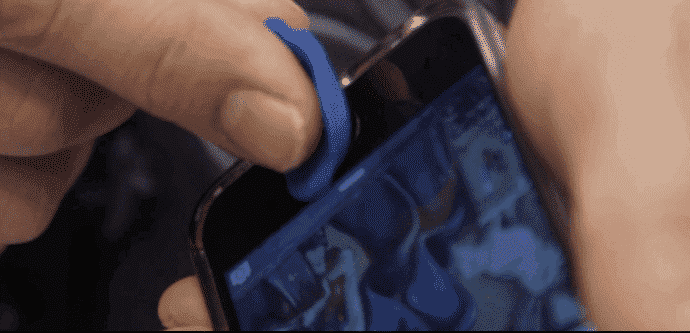Researchers prove that smartphone fingerprint sensors can easily be fooled with clay finger at MWC 2016
Many smartphone makers including Apple swear by fingerprint technology to protect their phones from hackers. A sensor manufacturer from China has demonstrated just how easy it is to fool a smartphone fingerprint sensor. The Chinese start-up used the MWC 2016 platform to demonstrate that it could unlock an Apple iPhone via the fingerprint sensor using Play-Doh.
President of mobile security firm Vkansee, Jason Chaikin, created a mold of his fingerprint. He then took the modeling clay Play-Doh, pressed it on to the mold and created a replica. Chaikin touched the Play-Doh on an iPhone’s fingerprint scanner and the device easily gave Chaikin access.
Vkansee showed how to hack an iPhone fingerprint sensor using Play-Doh #MWC16 pic.twitter.com/FRY7JGMh2M
— Arjun Kharpal (@ArjunKharpal) February 24, 2016
The hack demonstrated by Chaikin would not be practical for cyber criminals but it demonstrates how easily little ingenuity could trick the sensors. Chaikin demonstration also highlights the lack of sophistication in today’s biometric solutions, not just on iPhones, but on other smartphones and devices too.
Apple did not respond with an official comment but pointed to the security section of its website.
“Every fingerprint is unique, so it is rare that even a small section of two separate fingerprints are alike enough to register as a match for Touch ID. The probability of this happening is 1 in 50,000 for one enrolled finger,” the website read.
“Touch ID only allows five unsuccessful fingerprint match attempts before you must enter your passcode, and you can’t proceed until doing so.”
Chaikin has no hate for Apple rather he likes Apple. This is because he chose a iPhone to promote his own company’s patented fingerprint sensor that sits under the glass of a phone. Currently manufacturers have to cut a hole in the device to put in the sensor.
“The demand for under glass scanning that’s resistant to hacking is the number one thing that we hear from the device makers,” Chaikin told CNBC during an interview at the Mobile World Congress (MWC) in Barcelona on Wednesday.
He described the battle to create watertight biometric security as something of an arm’s race between technologists and cyber thieves.
Yesterday at Mobile World Congress, MasterCard stated that it is pushing out a new payment verification platform involving selfies and fingerprint verification in a move aimed at encouraging younger generations to adopt biometric security.

